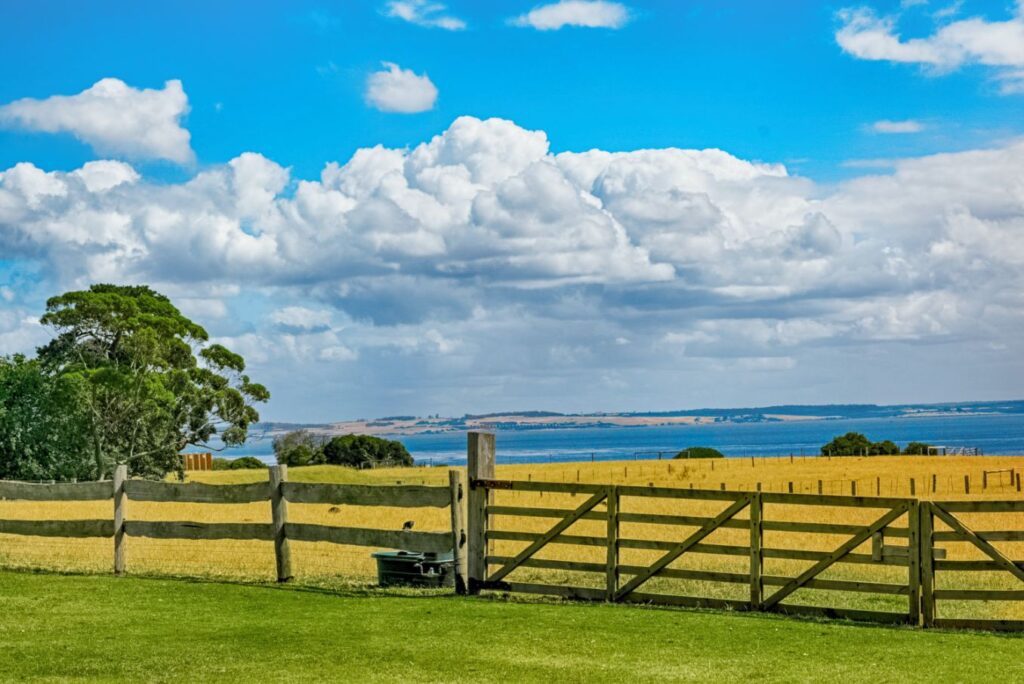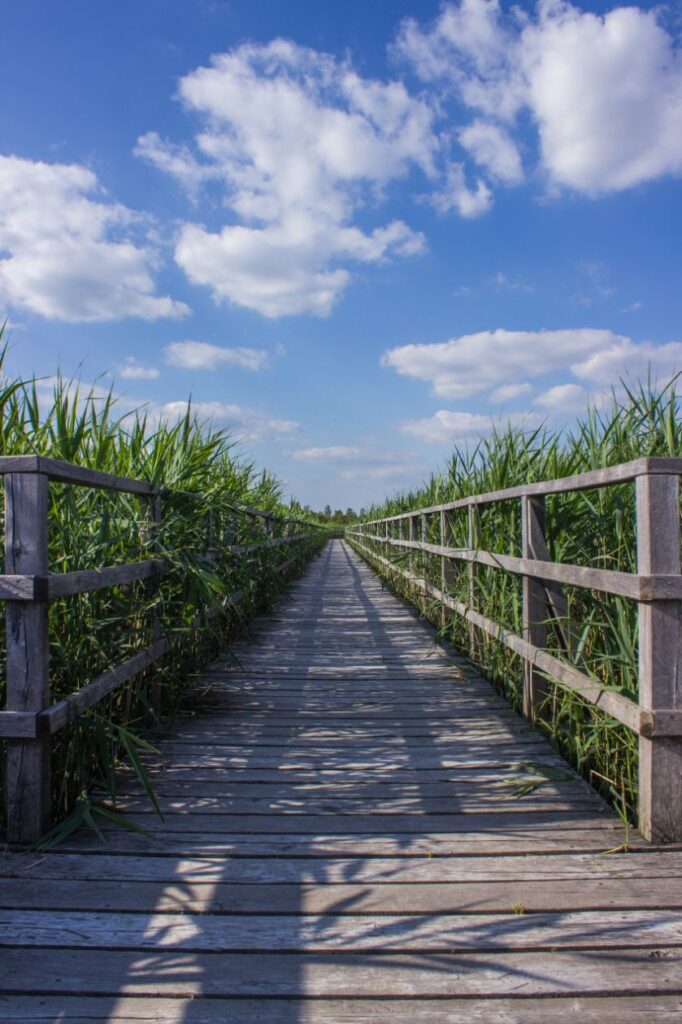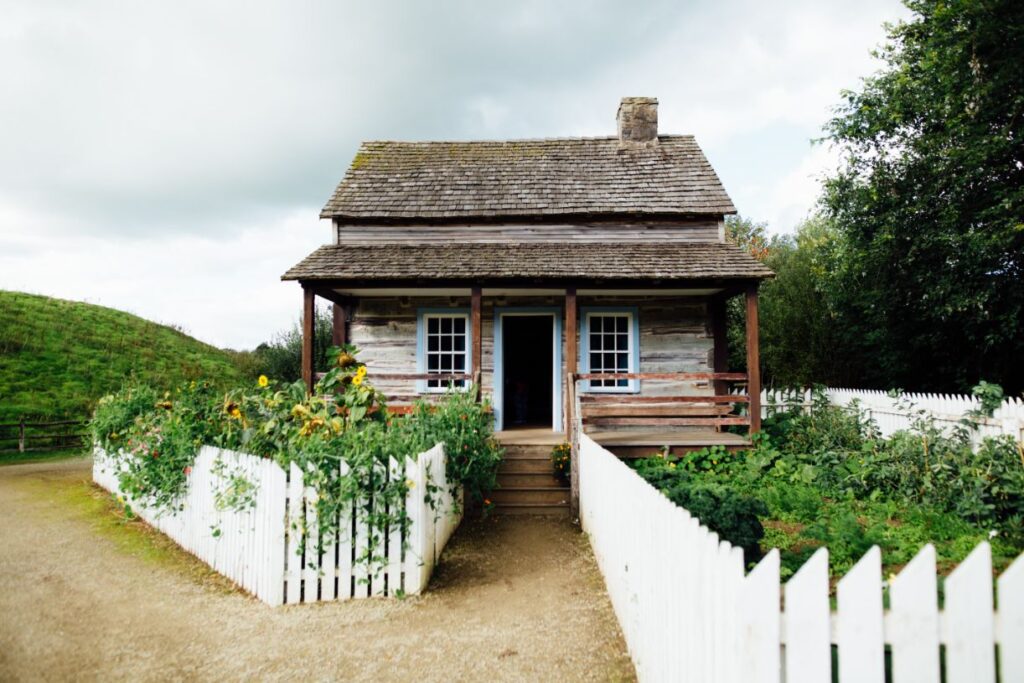- Free Estimates

When fencing your property, it’s important to consider the impact your choice of material can have on the environment. Traditional fencing materials like wood, vinyl, and metal can contribute to deforestation, pollution, and waste. Fortunately, plenty of eco-friendly fencing options offer a sustainable and attractive alternative. In this blog, we’ll explore some of the most popular eco-friendly fencing materials and ideas and provide tips for Newtown, CT, fence installers looking to reduce their carbon footprint.
Bamboo fencing is quickly becoming popular for homeowners looking to go green with their fencing options. Bamboo is a fast-growing and renewable resource, making it a sustainable and environmentally friendly choice. In addition, the fence’s natural durability and resistance to insects and weather make it an attractive option for homeowners who want a long-lasting, low-maintenance fence.
Benefits of Bamboo Fence
One of the great benefits of bamboo fencing is the variety of styles available. Bamboo can be fashioned into various fences, including slat and rolled fencing. Rolled bamboo fencing is particularly popular as it can be easily installed, making it a cost-effective option for those who want a beautiful fence without needing professional installation.
Downsides of Bamboo Fence
While bamboo is a strong and durable material, it may not suit all climates. In addition, bamboo fencing may not be as resilient as other materials in areas with harsh weather conditions, such as high winds or extreme temperatures. Therefore, it’s important to consider your climate and the specific conditions of your property before choosing bamboo as your fencing material. If you’re interested in installing bamboo fencing, contact a reputable fence installer in Newtown, CT, to learn more about them.
Recycled plastic fencing is a sustainable and eco-friendly option that recently gained popularity. Made from post-consumer plastic waste such as plastic bottles and bags, this type of fencing provides a durable and low-maintenance alternative to traditional vinyl or PVC fencing.
Benefits of Plastic Fence
One of the biggest benefits of recycled plastic fencing is its resistance to rot, mold, and pests. In addition, unlike traditional fencing materials, recycled plastic won’t warp or splinter over time, making it a long-lasting and cost-effective choice. It also comes in various colors and styles, so you can choose a look that fits your aesthetic preferences.
Downsides of Plastic Fence
It’s important to note that recycled plastic fencing is not biodegradable. While it is made from recycled materials, it will not break down over time and may contribute to plastic waste if disposed of improperly. Additionally, recycled plastic fencing may not be suitable for areas with extremely high temperatures, as it can become brittle and crack.
Despite these limitations, recycled plastic fencing is a great option for homeowners looking to go green with their fencing choices. Its durability, low maintenance, and eco-friendliness make it an attractive option for investing in a long-lasting and sustainable fence. For more information about this type of fencing, consult with reliable fence installers in Newtown, CT.

Living fences, also known as hedges, are an excellent option for homeowners looking to add a natural and sustainable touch to their property. Unlike traditional fencing options, living fences provide a range of environmental benefits. They provide habitat and food for wildlife, such as birds and insects, and help reduce noise pollution by acting as a sound barrier. Additionally, they absorb carbon dioxide from the atmosphere, contributing to cleaner air and a healthier environment.
Various plants can make living fences, including boxwood, privet, holly, etc. These plants can be trained and pruned to create a fence-like structure, offering privacy and security while maintaining a natural and organic aesthetic. In addition, the versatility of living fences means that they can be designed to fit any size or shape of the property, making them an excellent choice for homeowners with unique or irregularly-shaped lots.
Benefits of Living Fence
Living fences offer a beautiful and natural alternative to traditional fencing options. They provide numerous environmental benefits and can enhance the beauty and value of your property. If you’re interested in installing a living fence, trusted fence installers in Newtown, CT, can provide professional installation and maintenance services to ensure your living fence is healthy, vibrant, and beautiful for years.
Downsides of Living Fence
While living fences are a low-maintenance option, they require regular pruning and upkeep to maintain their shape and density. Additionally, some plants may be more susceptible to disease or pest infestations, so choosing the right plant species and staying on top of any issues is important.
Salvaged wood fencing is a unique and sustainable option made from reclaimed wood, such as old barn doors or pallets, that would otherwise be discarded. Salvaged wood fencing provides an eco-friendly alternative to traditional fencing materials and adds a rustic and unique touch to your property.
Benefits of Salvaged Wood Fence
One of the biggest benefits of salvaged wood fencing is the character and charm it brings to your property. Each piece of wood has its own story and history, and when used to create a fence, it adds a beautiful and natural aesthetic to your landscape. In addition, salvaged wood can be stained or painted to match your style, allowing you to customize the look.
Downsides of Salvaged Wood Fence
It’s important to note, however, that salvaged wood may not be as durable as new wood. The wood may be more susceptible to rot, insect damage, or other issues compromising its structural integrity. Additionally, salvaged wood may require additional maintenance to keep it looking its best, such as regular staining or sealing to prevent weather damage.
Despite these limitations, salvaged wood fencing is a great option for homeowners looking to add a unique and sustainable touch to their property. It provides a one-of-a-kind look and feels that cannot be replicated by traditional fencing materials. Plus, salvaged wood fencing helps reduce waste and supports a circular economy by repurposing materials that would otherwise end up in landfills.

Vertical gardens are a trendy and eco-friendly way to create a living fence. They’re ideal for small spaces, as they don’t take up much ground space. Vertical gardens can be made from various plants, including succulents, herbs, and flowers. They also provide additional benefits, such as improving air quality and reducing energy costs.
Gabion walls are made from wire cages filled with rocks, stones, or recycled materials. They’re a sturdy and visually striking option that can be customized to suit your design preferences. Gabion walls can also serve as a natural sound barrier and provide excellent drainage and erosion control.
Wattle fencing is a traditional fencing that dates back to medieval times. It’s made from woven branches or twigs and can be a sustainable and rustic option for eco-conscious homeowners. Wattle fencing can be a privacy screen, garden trellis, or decorative accent.
Recycled metal fencing is made from scrap metal, such as old car parts or appliances. It’s a durable and industrial option that can add a unique and modern touch to your property. Recycled metal fencing can be painted or left in its natural state and is resistant to weather and pests.
Proper Installation Techniques To ensure the longevity and effectiveness of your eco-friendly fence, it’s important to follow proper installation techniques. This includes using appropriate hardware, such as galvanized or stainless steel screws, and ensuring proper spacing and leveling of fence posts. If you’re unsure about the installation process, hiring a professional fence installer in Newtown, CT, who specializes in eco-friendly materials is best.

While eco-friendly fencing materials are often low-maintenance, it’s still important to regularly inspect and maintain your fence. This includes removing debris and weeds, treating any signs of rot or insect damage, and ensuring proper drainage to prevent water damage. Regular maintenance can extend the lifespan of your fence and prevent the need for costly repairs or replacement.
When choosing eco-friendly fencing materials, consider sourcing locally to reduce transportation emissions and support your local economy. Local wood or bamboo suppliers, salvage yards, and garden centers often provide sustainable and affordable options.
You can also incorporate other sustainable features into your fence design. For example, rainwater harvesting systems can be integrated into vertical gardens or gabion walls to irrigate your plants. Solar-powered lighting or motion sensors can also be installed to reduce energy consumption.
Choosing eco-friendly fencing options can positively impact the environment and your wallet. By reducing your carbon footprint, you’re contributing to a healthier planet and supporting sustainable practices. Additionally, many eco-friendly fencing materials are low-maintenance and long-lasting, saving you money on repairs and replacement in the long run.
Going green with your fencing options is not only good for the environment, but it can also be an attractive and cost-effective choice for your home. From incorporating sustainable features to choosing eco-friendly materials like bamboo and salvaged wood, plenty of options are available. However, remember to prioritize proper installation and regular maintenance to keep your fence in shape.
If you want to install an eco-friendly fence, we highly recommend working with Newtown Fence Contractor. Their team of skilled fence installers in Newtown, CT, can guide you through the process. Contact them today to learn more about their services and start building your sustainable and beautiful fence.